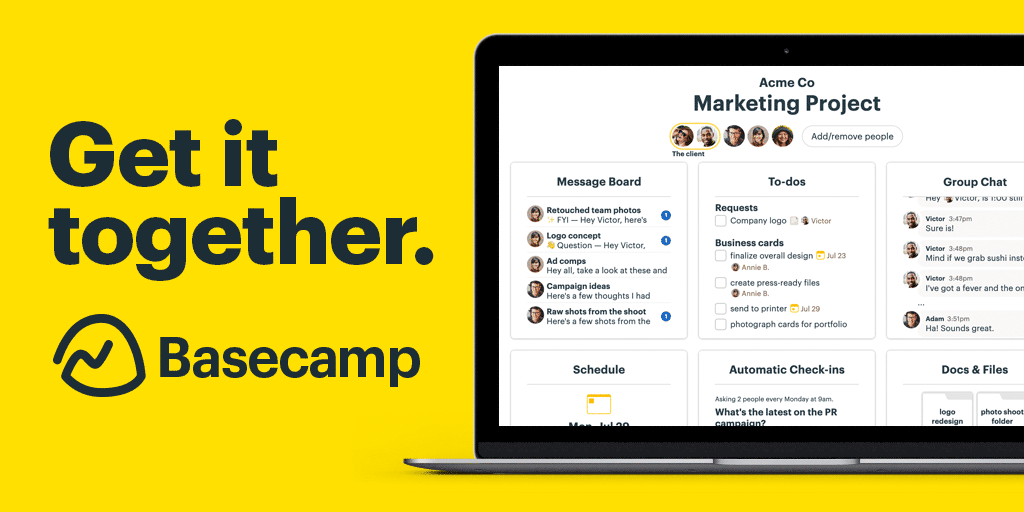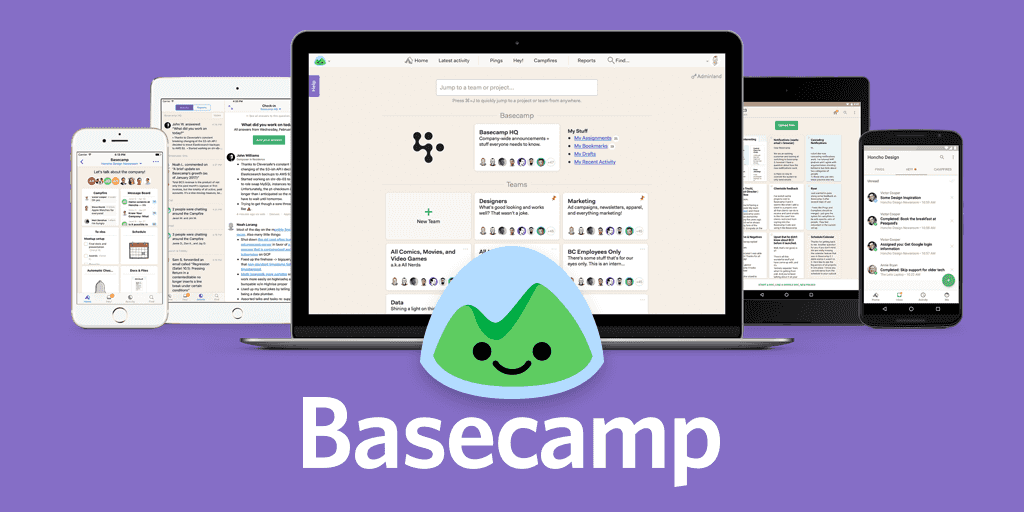Often when entrepreneurs start brainstorming sessions about the direction that they want their company to go to and the many ways they can provide added value, there’s a tendency to go off tangent. Wanting to do so much is completely understandable since most businesses start with addressing a major societal concern, whether it’s for improving well-being, assisting in work efficiency, or other problems that need solutions.
However, what this does is make you lose focus because you want to achieve more with the resources you currently have. That means going overtime, taking on too much load, and stressing over different tasks that will most likely be unrelated to each other.
When 37Signals Became Basecamp

When business partners Jason Fried and David Heinemeier Hansson were discussing plans for 37Signals, they wanted two things out of their meeting: new product offerings and updates on existing products. The main problem being that they want to achieve lots of things without adding more people to their company.
It wasn’t after a few months from their first meeting did they entertain the possibility of growing the company by focusing on fewer things.
In an article Fried wrote for INC.com, he says, “David and I have been talking about what products to build and how we should grow. We keep talking about doing more things, but we haven’t entertained the other option: Do fewer. So I want to pitch something radical. I want us to put all of our efforts into a single product–our main product, Basecamp.”
At the time, Basecamp was one of their popular products, contributing around 87% of their revenue and 90% of their revenue growth. It also receives a majority of their web traffic, so it only made sense to choose Basecamp as their sole focus.
But Fried surprised the team even more when he suggested that they change the company name from 37Signals to Basecamp, saying, “When we talk about who we are and what we do, we’ll be saying the same thing. Basecamp the product, Basecamp the company.”
Moving Basecamp Forward with Outsourcing

Now with a new mission in mind, the people at Basecamp started rolling out the changes to move the company forward. There were countless plans to communicate this new focus both to their clients and to everyone in the company, strategies for expanding Basecamp’s reach, and how to best provide the attention clients deserve.
However successful their strategies are though, the internal processes, it seemed, still needed a bit of refinement. Jason Fried, explains, ”As demand for our services grew, we found ourselves increasingly disorganized.[…] We didn’t like the rag-tag image we were portraying to our clients. They were paying us good money — and our work was good — but the way we organized the work, communicated about the work, and presented the work wasn’t becoming. It was time to tidy up and get our shit together.”
This is where outsourcing entered the picture.
To help the team focus on improving the software’s features, they started engaging with remote workers and outsourcing some of the load. Now, the remote development team was free to move the application forward by focusing on Basecamp’s main priorities while the rest of the operations are made seamless and organized.
Refine Processes with Outsourcing

The key takeaway from Basecamp’s story is making sure both your product and the process that will create and refine it are in order. Finding a dedicated outsourcing team who can assist you in keeping your business organized means you now have the bandwidth to focus on other important business priorities.
It’s all about having clear goals and working with an equally passionate and talented team who will help you achieve them.
